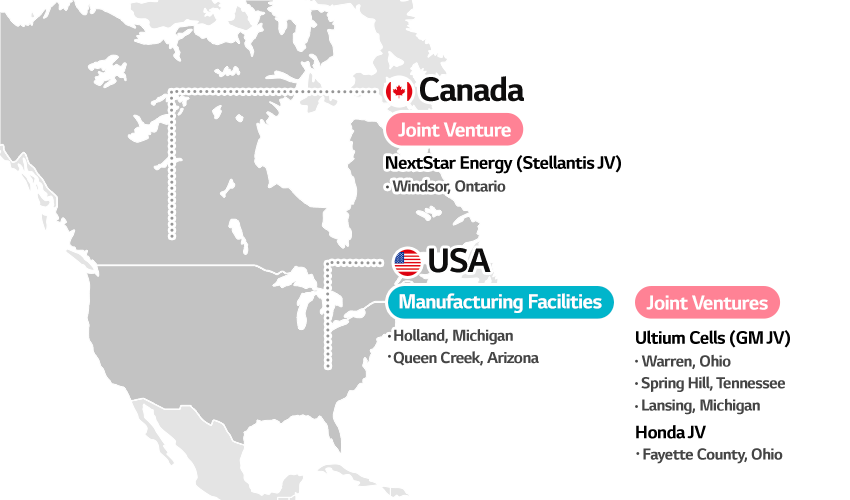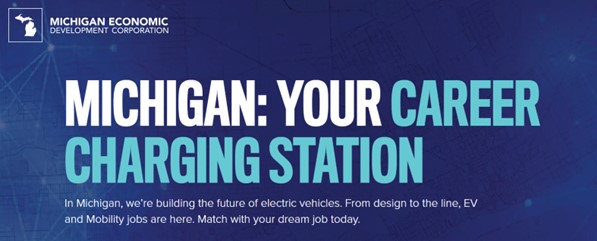Local and state governments in the U.S. are increasingly considering companies as strategic partners for economic development rather than businesses to regulate. Along with business investment, corporations can contribute to national and local economies by creating well-paid jobs and driving quality education everywhere they operate. In particular, electric vehicle (EV) industry requires next-generation battery professionals to ensure a seamless energy transition over the coming years.
The U.S. Battery Belt is quickly becoming a household term across North America, referring to the new manufacturing region specializing in EVs and batteries forming across the South and Midwest. This new wave of industrialization is reinventing the economic development model and workplaces while facilitating a workforce made up of professionals from diverse fields.

After entering the North American market before anyone else, LG Energy Solution (LGES) is now invigorating the local economy as a strategic partner located in the heart of America’s ‘Battery Belt’ – which includes Michigan, Ohio, and Tennessee. What’s more, its first U.S. manufacturing plant in Holland, Michigan, established in 2010, is being expanded through a USD 1.7 billion investment, creating 1,200 new jobs by 2025. Recently, LGES announced a new manufacturing complex boasting two facilities – one for cylindrical batteries for EVs and another for lithium iron phosphate (LFP) pouch-type batteries for energy storage systems (ESS) – which will be constructed in Queen Creek, Arizona, representing the largest-ever single investment for a stand-alone battery manufacturing facility in North America.
In addition, LGES has strong, long-time partnerships with major global automakers. A prime example is Ultium Cells LLC – a joint venture (JV) it established with General Motors to produce battery cells. The first plant in Ohio is currently up and running. Two more facilities in Tennessee and Michigan are expected to start production in 2023 and 2024, bringing 1,300 and 1,700 new jobs, respectively.
The formal establishment of a JV with the Honda Motor Co. was also announced earlier this year, which secures the production of lithium-ion batteries for Honda’s EVs. The two companies committed to investing USD 3.5 billion to establish a new production facility in Jeffersonville, Ohio, which will create a further 2,200 jobs.
In an effort to boost its contribution to the entire North American battery economy, LGES and Stellantis N.V. revealed their plans to build Canada’s first large-scale EV battery manufacturing facility in Winsor, Ontario. The project represents an investment of over CAD 5 billion (USD 3.6 billion) that will secure 2,500 new jobs for the area.
Besides creating thousands of jobs, as a major Michigan employer and partner of the Michigan Economic Development Corp. (MEDC), LGES has joined the nation’s largest-ever campaign to bolster careers and attract exceptional talent to the automotive industry. MEDC matches job seekers with EV and mobility careers, and provides training to help fill the region’s growing number of EV-related jobs.
The campaign also includes the Michigander EV Scholars program, which hands out scholarships worth USD 10,000 to as many as 350 top university tech students who sign a letter of employment with one of the 9 participating companies, which includes LGES. This public-private collaboration is expected to build a new network of university students interested in pursuing a career in the EV sector. “Always at the forefront of green business, LG Energy Solution is constantly promoting sustainability, electrification, and innovation within the EV sector,” said Denise Gray, head of external affairs and government relations at LGES Michigan. “Joining with the MEDC’s Talent Action Team was a natural choice since it aligns with our commitment to building an impactful global business by situating Michigan’s rich pool of talent near the epicenter of the automotive industry.”
The EV and battery industries are poised to become significant growth drivers for the North American economy as the Biden administration aims to have electric vehicles account for half of all new car sales in the US by 2030. LGES is fully supporting this initiative by continuing to promote the sustainable growth of the North American EV industry by funding and investing in new jobs and world-class EV-related education.

